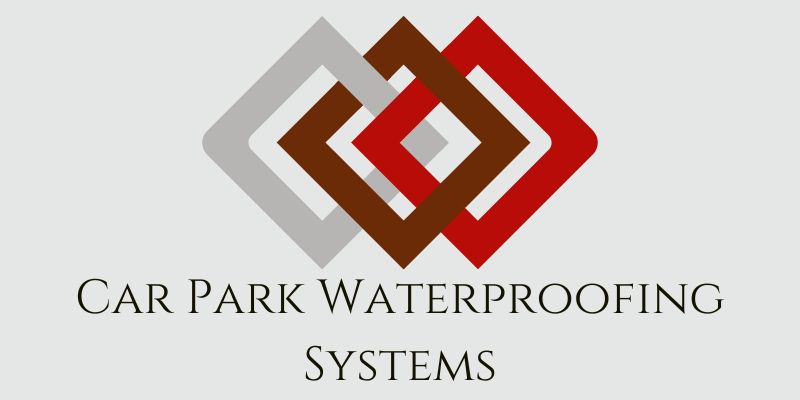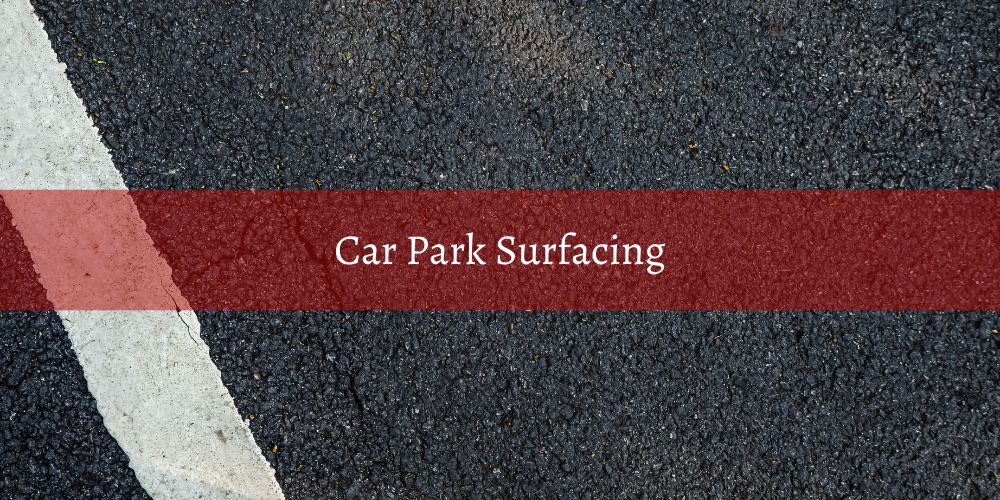Car park surfacing involves the application of a durable and suitable material, such as concrete, or mastic asphalt, to the surface of a parking area. This process creates a smooth, stable, and weather-resistant surface capable of withstanding vehicular traffic and environmental elements. Effective car park surfacing enhances the safety, functionality, and aesthetic appeal of the parking facility. Regular maintenance and resurfacing are necessary to address wear and tear, ensuring the longevity and performance of the car park.
Car Park Waterproofing Systems deliver high-performance car park surfacing solutions tailored to meet the demands of modern parking facilities. We install a wide range of surface systems, including asphalt, mastic asphalt, PMMA (polymethyl methacrylate), and liquid polyurethane coatings, each chosen for its durability, flexibility, and resistance to wear. Our PMMA and polyurethane systems are fast-curing, seamless, and ideal for areas requiring rapid return to service, making them perfect for busy multi-storey and rooftop car parks. All our surfacing options are designed to withstand heavy traffic, harsh weather, and chemical exposure while providing excellent slip resistance and long-term performance. Whether for new construction or refurbishment, Car Park Waterproofing Systems ensure every surface is professionally installed and built to last.
What Is Car Park Surfacing?
Car park surfacing refers to the process of applying a durable and stable surface layer to parking areas to ensure they can withstand the wear and tear of vehicular traffic while providing a safe and visually appealing environment. This process involves selecting appropriate materials, such as asphalt, concrete, or resin-bound gravel, and applying them to create a smooth, even surface. Proper surfacing is crucial for maintaining the structural integrity of the car park, preventing damage from water ingress, and enhancing the overall user experience. In the UK, where weather conditions can be highly variable, car park surfacing must be designed to withstand rain, frost, and the effects of de-icing salts, which can cause surface degradation over time.
According to the British Parking Association, well-executed surfacing can significantly extend the lifespan of a parking facility, reducing the need for frequent maintenance and repairs. Furthermore, effective car park surfacing improves safety by providing a slip-resistant surface, minimizing the risk of accidents for both vehicles and pedestrians. The choice of materials and techniques can also contribute to environmental sustainability, with options available that incorporate recycled materials and permeable surfaces to manage stormwater runoff effectively. Thus, car park surfacing is a critical aspect of parking facility management, ensuring functionality, safety, and compliance with regulatory standards.
Have a question about an upcoming project?
What Are The Benefits of Car Park Surfacing?
Car park surfacing offers numerous benefits that are crucial for maintaining the functionality, safety, and appeal of parking facilities. The primary advantage is enhanced safety, as a well-surfaced car park minimizes the risk of accidents for both vehicles and pedestrians. Additionally, surfacing extends the lifespan of the parking area by protecting it from wear and tear, reducing the need for frequent repairs. Aesthetically pleasing surfaces also improve the visual appeal of the facility, making it more attractive to users and potentially increasing property values. The following sections will explore these benefits in detail, highlighting the importance of car park surfacing in ensuring a high-quality, safe, and sustainable parking environment.
- Enhanced Safety
- Extended Lifespan
- Improved Aesthetic Appeal
- Cost Efficiency
- Increased Property Value
- Better User Experience
- Regulatory Compliance
- Environmental Sustainability
1. Enhanced Safety
Car park surfacing significantly enhances safety by creating a smooth, even surface that reduces the risk of accidents for both vehicles and pedestrians. According to the Health and Safety Executive (HSE), well-maintained surfaces can decrease the risk of slips, trips, and falls by up to 30%. Proper surfacing with materials like asphalt or concrete ensures that there are no potholes, cracks, or uneven areas that could pose hazards. In the UK, where wet and icy conditions are common, slip-resistant surfaces are essential for maintaining safe car park environments. Effective drainage systems integrated into the surfacing also help prevent water accumulation, further reducing the risk of hydroplaning and slip accidents. The use of high-friction materials can also improve vehicle control, particularly in adverse weather conditions, ensuring a safer environment for all users.
2. Extended Lifespan
Car park surfacing extends the lifespan of parking facilities by protecting the underlying structure from wear and tear, as well as environmental damage. The Chartered Institution of Building Services Engineers (CIBSE) notes that regular maintenance, including resurfacing, can extend the life of a car park by 20-30 years. By applying durable materials that can withstand heavy traffic and adverse weather conditions, the need for frequent and costly repairs is minimized. In the UK's variable climate, high-quality surfacing materials such as mastic asphalt or resin-bound gravel provide long-lasting protection against frost, rain, and de-icing salts, ensuring that the car park remains functional and durable over time. This longevity reduces the frequency of major repair projects, leading to lower maintenance costs and fewer disruptions for users.
3. Improved Aesthetic Appeal
Car park surfacing enhances the visual appeal of the facility, creating a clean, smooth, and professional-looking environment. The Urban Land Institute notes that aesthetically pleasing car parks can increase property values by up to 10%. In the UK, where property values are heavily influenced by the quality of amenities, maintaining an attractive appearance is crucial for commercial and residential properties. Well-surfaced car parks with clear markings and a neat finish reflect positively on the property's overall management and can make a significant difference in attracting and retaining customers. This visual appeal contributes to a positive first impression and enhances the overall user experience. Furthermore, a well-maintained car park can improve the reputation of the property, making it more desirable to potential buyers or tenants.
4. Cost Efficiency
Investing in car park surfacing is a cost-efficient strategy as it prevents the need for more extensive and expensive repairs in the future. The Building Research Establishment (BRE) reports that preventive maintenance, including resurfacing, can reduce overall repair costs by up to 40%. By addressing surface issues promptly, facility managers can avoid the high costs associated with structural damage and emergency repairs. In the UK, where the cost of construction and repair is high, resurfacing provides a cost-effective way to maintain the car park’s functionality and appearance over the long term. Regular resurfacing also minimizes downtime and disruption to car park operations, ensuring continuous availability and service for users. This proactive approach to maintenance helps manage budget more effectively and reduces the likelihood of unexpected expenditures.
5. Increased Property Value
A well-maintained and resurfaced car park can significantly increase property value by enhancing its functionality, safety, and visual appeal. The Urban Land Institute suggests that properties with high-quality car parks can see value increases of up to 10%. In the UK, where property values are heavily influenced by the quality of amenities, a resurfaced car park can make a property more desirable to potential buyers and tenants. This is especially important for commercial properties where the condition of parking facilities can impact tenant satisfaction and retention. A visually appealing and well-functioning car park reflects positively on the overall management of the property, making it more attractive in the competitive real estate market. Moreover, a well-maintained car park can signal to potential buyers and tenants that the property is well cared for, enhancing their confidence in the investment.
6. Better User Experience
A resurfaced car park provides a better user experience by offering a smooth, safe, and visually appealing environment. The British Parking Association highlights that well-maintained car parks are more likely to retain customers and improve overall user perception. For commercial properties, customer satisfaction is directly linked to business success. Features such as clear signage, smooth surfaces, and adequate lighting, which are often part of resurfacing projects, contribute to a positive user experience and encourage repeat visits. In urban areas where parking options may be limited, user satisfaction can lead to increased loyalty and repeat business. Enhancing the user experience through resurfacing helps create a welcoming and efficient environment, fostering a sense of safety and convenience for all users. Additionally, a well-maintained car park can facilitate easier navigation, reducing user frustration and improving overall satisfaction.
7. Regulatory Compliance
Regular resurfacing helps ensure that car parks comply with UK building regulations and safety standards. The Construction Industry Research and Information Association (CIRIA) emphasizes the importance of maintaining structurally sound and safe facilities to meet regulatory requirements. Compliance with these standards helps avoid fines and legal liabilities, ensuring that the car park operates within the legal framework. By addressing surface damage, drainage issues, and ensuring accessibility for disabled users as required by the Equality Act 2010, resurfacing projects help maintain regulatory compliance and promote a safe, accessible environment for all users. Staying up-to-date with regulations not only avoids legal repercussions but also demonstrates a commitment to maintaining high safety standards and can enhance the reputation of the facility. Regular compliance checks and updates can further ensure that the car park adheres to the latest safety guidelines and best practices.
8. Environmental Sustainability
Car park resurfacing can incorporate sustainable practices, such as using eco-friendly materials and improving drainage systems to manage stormwater runoff effectively. According to the Environmental Protection Agency (EPA), sustainable resurfacing practices can reduce a facility’s carbon footprint by up to 30%. In the UK, where environmental regulations are becoming increasingly stringent, incorporating sustainability into resurfacing projects can help car park operators meet these requirements and enhance their reputation as environmentally responsible businesses. Using recycled materials in the resurfacing process and implementing effective drainage solutions also contribute to environmental protection and sustainability. Sustainable practices not only benefit the environment but also attract eco-conscious users and clients, further enhancing the facility's appeal and long-term viability. Furthermore, integrating green technologies such as permeable paving can improve water management and reduce the environmental impact of stormwater runoff.
If you require more information about car park surfacing or would like a quote for your project, click the button below. Our professional team is ready to assist you with all your surfacing needs.


